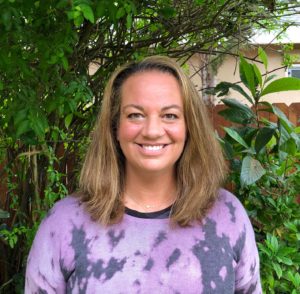Date/Time
Date(s): Sep. 12 - Nov. 14
7:00 pm - 9:30 pm (Mondays)
**This is a zoom class**
In the gold-standard 8-week full course, Mindful Self-Compassion (MSC), you will learn how to hold yourself with tenderness and compassion when you need it most — when you fail, feel inadequate, or are facing one of life’s many challenges.
Too often we meet this type of pain and struggle with harshness and self-criticism. MSC teaches you how to be present and courageous in the face of physical and emotional pain rather than fighting it or turning away from it – the key to living deeply, no matter what external conditions we face.
MSC was developed by MSC’s pioneering researchers and clinicians Drs. Kristin Neff and Christopher Germer and is taught by thousands of teachers around the world.
Research:
Research has shown that self-compassion greatly enhances emotional well-being. It boosts happiness, reduces anxiety and depression, and motivates you for life-long growth and wellness, while avoiding burnout. All that’s required is a shift in the direction of your attention – recognizing that as a human being, you, too, are a worthy recipient of compassion.
From the New York Times:
The research suggests that giving ourselves a break and accepting our imperfections may be the first step toward better health. People who score high on tests of self-compassion have less depression and anxiety, and tend to be happier and more optimistic.
This idea does seem at odds with the advice dispensed by many doctors and self-help books, but Kristin Neff, a pioneer in the field and the co-creator of the MSC program, says self-compassion is not to be confused with lower standards.
“I found in my research that the biggest reason people aren’t more self-compassionate is that they are afraid they’ll become self-indulgent,” said Dr. Neff, an associate professor of human development at the University of Texas at Austin. “They believe self-criticism is what keeps them in line. Most people have gotten it wrong because our culture says being hard on yourself is the way to be.”
Imagine your reaction to a child struggling in school. Many parents would offer support including tutoring or other emotional support. But when adults find themselves in a similar situation – such as struggling at work or in relationships,– many fall into a cycle of self-criticism and negativity. That leaves them feeling even less motivated to change.
“Self-compassion is really conducive to motivation,” Dr. Neff said. With self-compassion, if you care about yourself, you do what’s healthy for you rather than what’s harmful to you.”
Teacher Bios:
Angelike Dexter
Angelike Dexter loves sharing mindfulness, compassion, and Mindful Self-Compassion (MSC) with students of all ages in the Los Angeles area and now, on Zoom, around the world. Trained by Susan Kaiser Greenland (author of “The Mindful Child” and “Mindful Games”) in 2013 and a long-time member of the Inner Kids teacher group, Angelike teaches mindful and compassionate awareness to children, parents, teachers, and families through public and private schools as well as other community organizations. Angelike is a Certified Mindful Self Compassion (MSC) teacher (trained in and teaching MSC since 2015) and a graduate of the inaugural MSC for teens, “Making Friends With Yourself (MFY)” teacher training in 2016, and regularly teaches series of or skills from both courses, including through Mindful USC, the Center for Mindful Self-Compassion’s Circles of Practice, and through Insight LA, where she graduated from Insight LA’s Third Facilitators Training in 2018. Angelike has trained extensively in trauma-informed mindfulness practices and diversity, equity, inclusion, and belonging, in particular in relation to holding mindfulness/compassion group spaces. A former attorney, Angelike continually delights in her current life as a mindfulness and compassion teacher!
Mark Miller, Psy.D., MPH, CMT-P, Coordinator of Mindful USC
Mark Miller is the coordinator of Mindful USC and a clinical psychologist who earned his doctorate in psychology at Pepperdine University. Dr. Miller worked at the USC Student Counseling Services for three years prior to his work with Mindful USC. He has been a meditator in the health care industry for over 25 years and is interested in integrating psychology and mindfulness practices.
Dr. Miller regularly teaches classes in the basics of mindfulness and Mindful Self-Compassion to help USC community members build skills to manage strong emotions and recurrent thoughts while being compassionate towards themselves and others.
